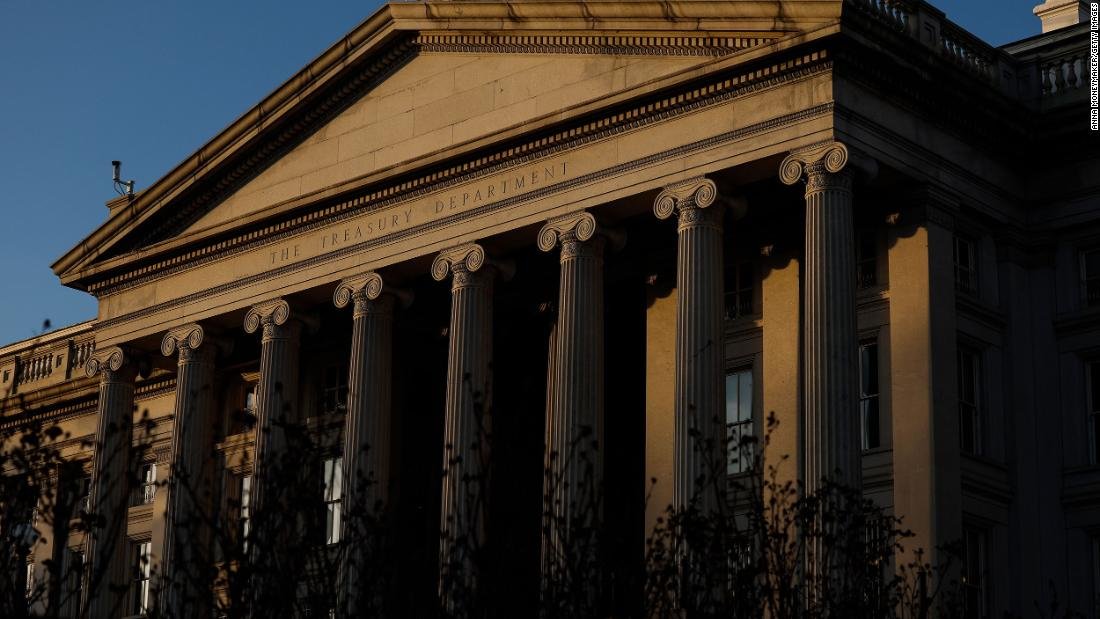Manchin calls for spending cuts amid debt ceiling fight
04:27 – Source: CNN
CNN —
Treasury Secretary Janet Yellen is taking another step to temporarily delay the US defaulting on its debt.
Less than a week after announcing that the nation hit its $31.4 trillion debt ceiling set by Congress, Yellen wrote to House Speaker Kevin McCarthy on Tuesday to say that she is adding to the extraordinary measures that will allow the government to keep paying its bills on time and stall the catastrophic economic and fiscal consequences of a default.
She will stop fully investing the Government Securities Investment Fund of the Thrift Savings Fund, part of the Federal Employees’ Retirement System, in interest-bearing securities of the US.
This is in addition to the measures announced last week, when Yellen said Treasury will begin to sell existing investments and suspend reinvestments of the Civil Service Retirement and Disability Fund and the Postal Service Retiree Health Benefits Fund.
These funds are invested in special-issue Treasury securities, which count against the debt limit. Treasury’s actions would reduce the amount of outstanding debt subject to the limit and temporarily allow it to continue paying the government’s bills on time and in full.
Yellen’s actions are mainly behind-the-scenes accounting maneuvers. No federal retirees or employees will be affected, and the funds will be made whole once the impasse ends, she wrote.
The extraordinary measures should last at least until early June, Yellen has said, though she stressed that her forecast is subject to “considerable uncertainty.”
Despite Yellen’s warnings to Congress to act promptly, little, if any, progress toward a resolution has been made between House Republicans and the White House.
White House press secretary Karine Jean-Pierre reiterated Monday that the Biden administration is not open to negotiating on the debt limit, pushing back against comments from West Virginia Democratic Sen. Joe Manchin that the position was “a mistake.”
“It was done three times in the past, in the past administration under Donald Trump, so this is nothing unusual,” she told CNN during a White House briefing. “This is something that should be done without conditions, and we should not be taking hostage key programs that the American people really earned and care about – Social Security, Medicare should not be put into a hostage situation.”
McCarthy also blasted the administration’s position, tweeting last week that he’s ready to meet to discuss “a responsible debt ceiling increase to address irresponsible government spending.” He noted that he accepts President Joe Biden’s invitation to sit down, though no such meeting has been set.
As part of the drawn-out negotiations to win the speaker vote earlier this month, McCarthy promised his conservative members that any effort to lift the debt ceiling would be accompanied by spending cuts.
The Senate, meanwhile, is taking a back seat in the standoff for now. Senate Republicans say they will wait to see how the House GOP maneuvers a way to raise the borrowing limit before deciding if they need to insert themselves into the process.
Despite the current situation, Senate Republican Leader Mitch McConnell told CNN Monday that “we won’t default,” without elaborating.
Senate Majority Leader Chuck Schumer on Tuesday laid out the severe consequences of a default, saying “every single American will pay the price.” He called on House Republicans to reveal the fiscal measures they want to take.
“Well, I say to my Republican colleagues: If you want to talk about spending cuts, then you have an obligation – an obligation – to show the American people precisely what kind of cuts you are talking about,” he said.
CNN’s Donald Judd, Phil Mattingly, Manu Raju and Ted Barrett contributed to this report.



